Cetbix IATF software revolutionizes your approach by
eliminating all manual processes. Transform your
current IATF strategies with our streamlined digital
procedures, ensuring greater efficiency and accuracy
in your operations.
Cetbix IATF Software transforms your current approach by boosting effectiveness by 80%.

Customer-specific requirements (IATF 4.3.2) extend
beyond the quality department; they impact nearly
every area of your business. To effectively identify
and manage these requirements, utilizing a structured
matrix can be an invaluable approach.
IATF Standard Requirements
It is essential for manufacturing plants to routinely
evaluate customer-specific requirements (CSRs) in
line with IATF standards. An initial assessment is vital
during the IATF certification process, while ongoing
evaluations should occur when reviewing OEM's
tailored specifications. The Cetbix digital matrix simplifies
this task.
How Cetbix Supports IATF 4.3.2 Compliance
The Cetbix IATF solution offers a robust matrix designed
to streamline your compliance with these critical
requirements. This matrix includes a comprehensive list
of IATF and CSR standards alongside the pertinent
business processes utilized in your production facility.
With the Cetbix Matrix, you have all the essential columns
at your disposal, customizable to your specific needs.
Additionally, the Cetbix solution delivers a turtle diagram
that 'seamlessly connects to your processes, making
compliance easier and more efficient.
The Cetbix Turtle diagram is an essential tool for
effectively analyzing and planning processes.
It provides a clear visualization of process steps,
represented as a turtle, where critical elements such
as inputs, outputs, required resources, and
responsibilities are strategically assigned to the head,
tail, and limbs.
This tool is highly adaptable, allowing for configuration
based on specific requirements.
The Turtle template serves as a powerful visual aid,
simplifying the complex processes that quality managers
encounter during IATF preparations. Cetbix Turtle
stands out as a classic method for visualizing, analyzing,
and enhancing processes. It excels in areas
like processing, risk assessment, and process optimization
within established frameworks
Most importantly, the Cetbix Turtle fosters collaboration,
enabling all stakeholders together seamlessly on the process.
With the Cetbix Turtle feature, your processes can
be mapped out transparently and understandably.
When all components of your process are visible
and documented, even minor adjustments can
reveal causal relationships, leading to meaningful and
sustainable improvements in your processes.
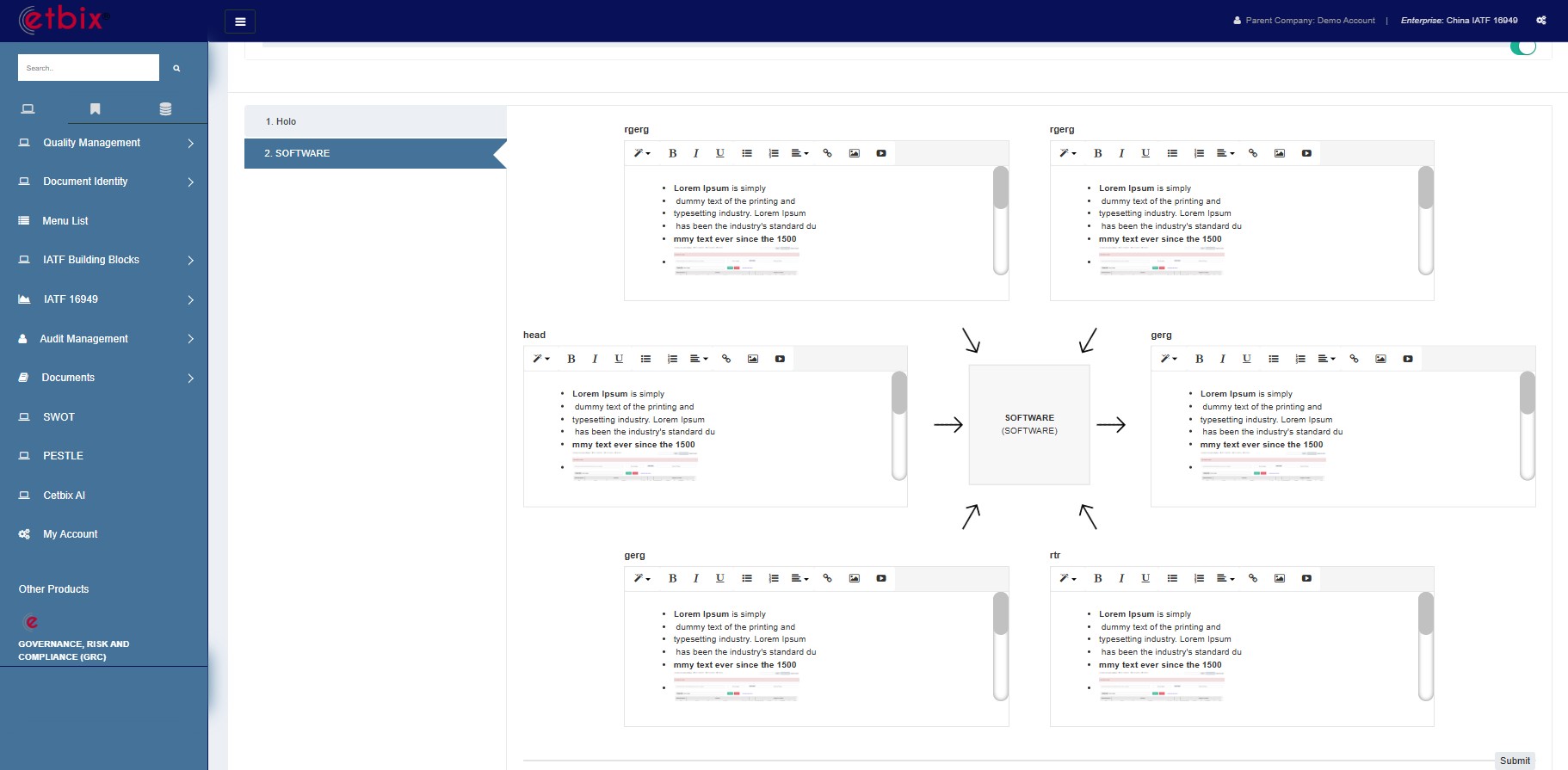
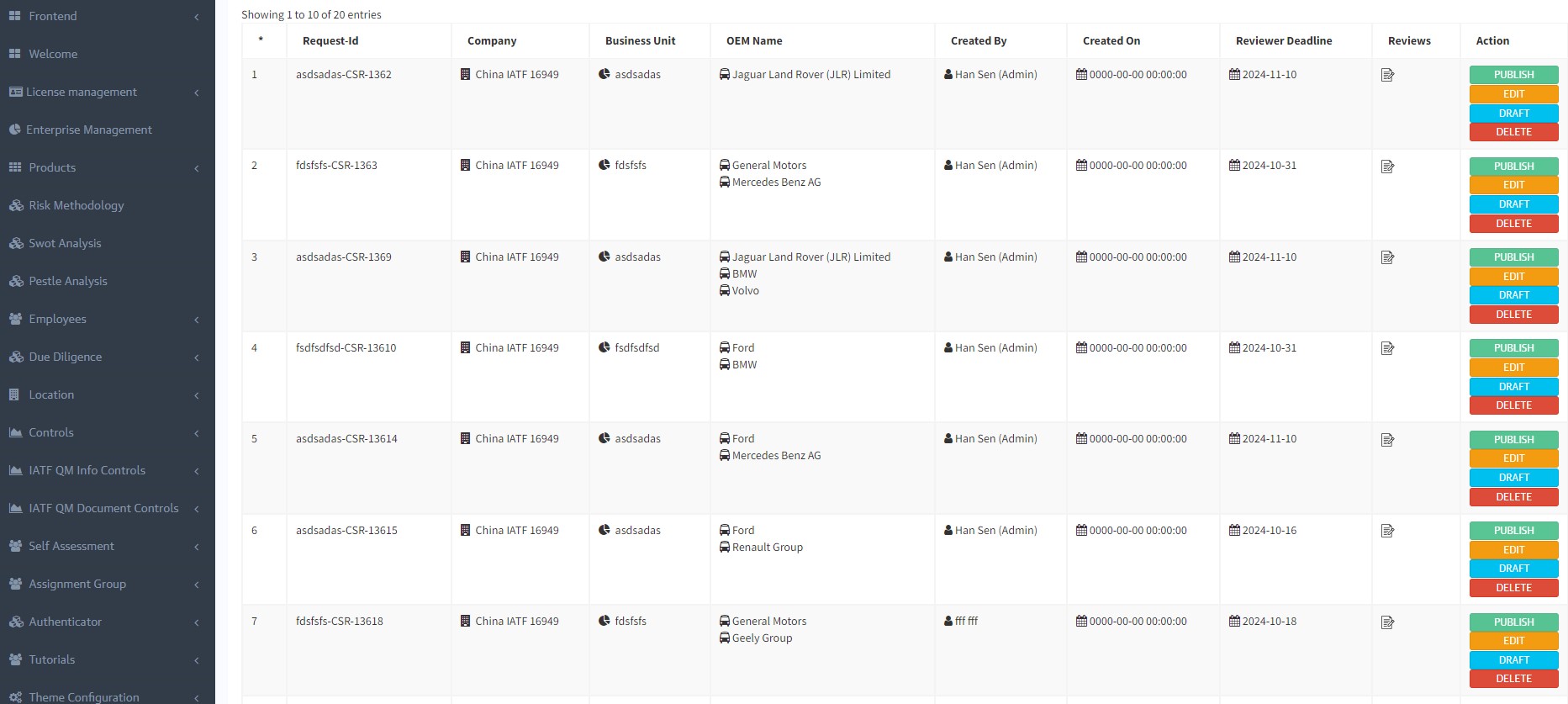
The Cetbix QMS documentation showcases our
commitment to meeting all applicable requirements
while ensuring high standards of quality assurance.
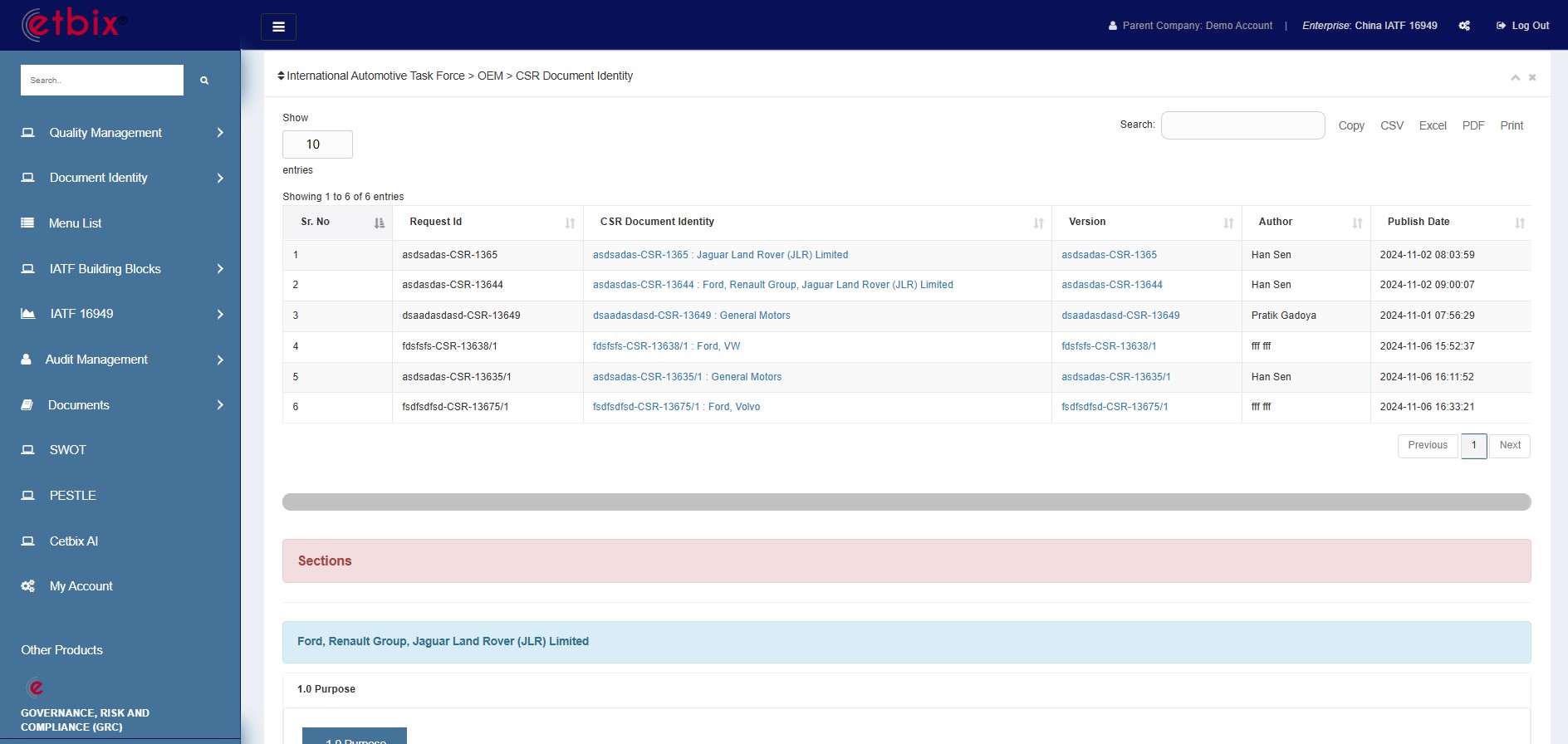
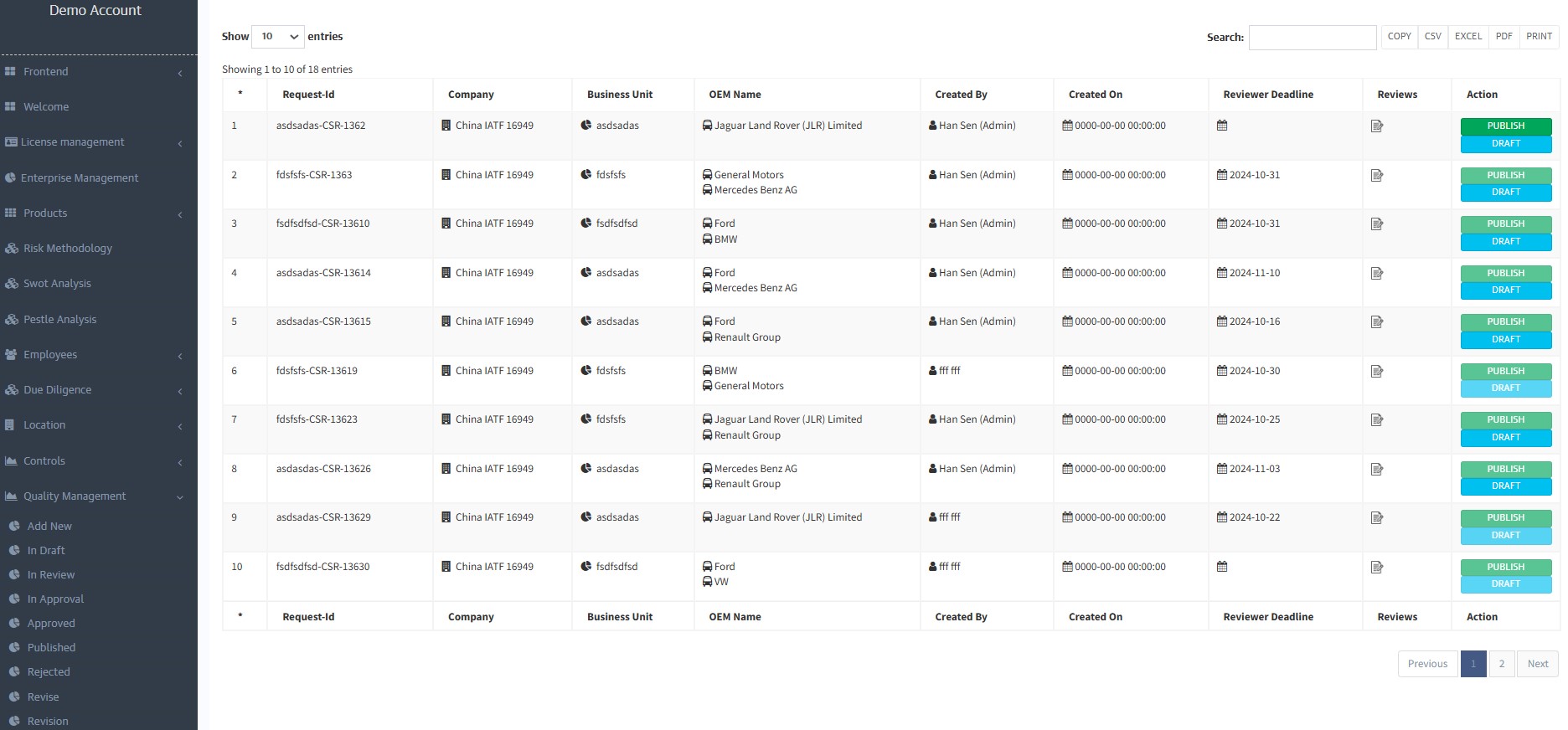

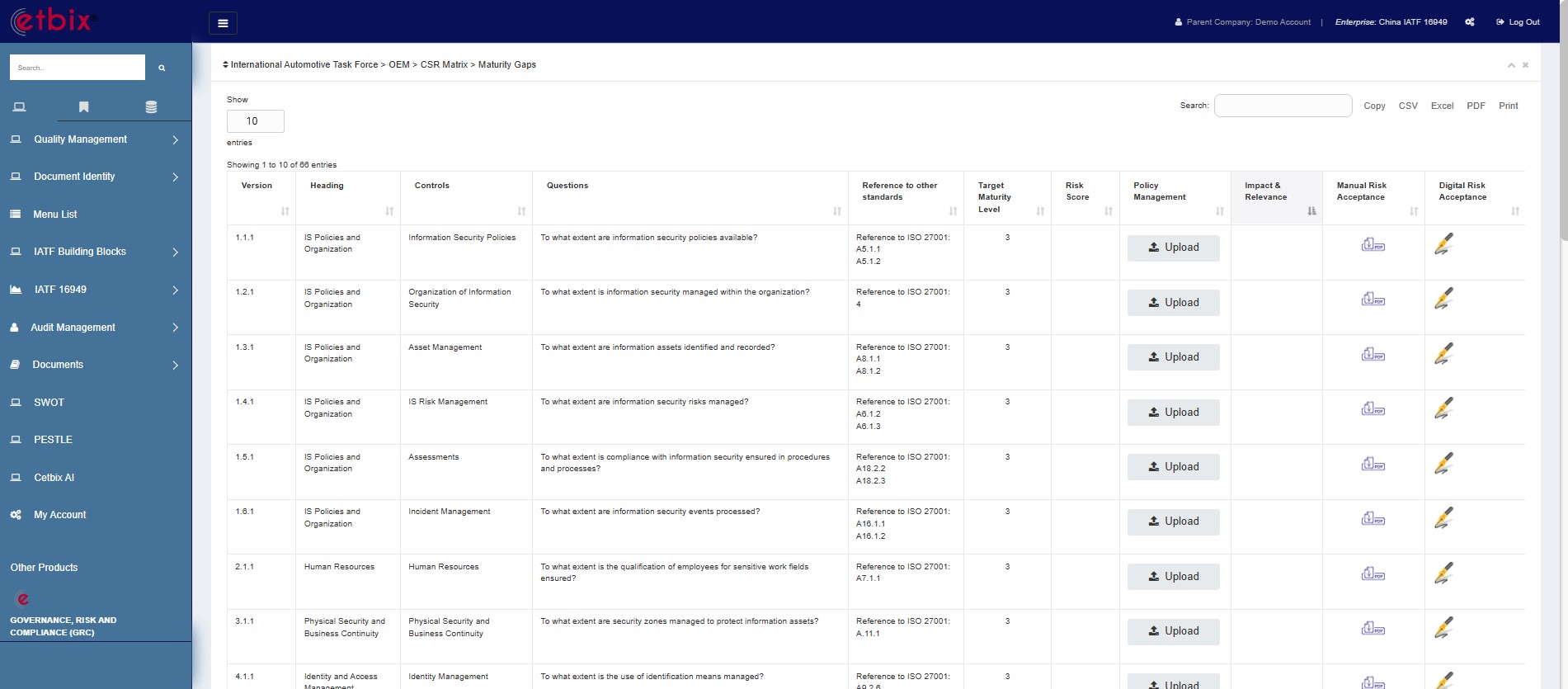
Unlock the power of the Cetbix Root Cause Analysis (RCA)
functions to effectively identify the root causes of faults
and problems. By utilizing five key methods—failure
mode and effects analysis (FMEA), fault tree analysis,
Ishikawa diagrams, and Pareto analysis—Cetbix RCA
empowers you to enhance decision-making and drive
continuous improvement in your processes.
.png)